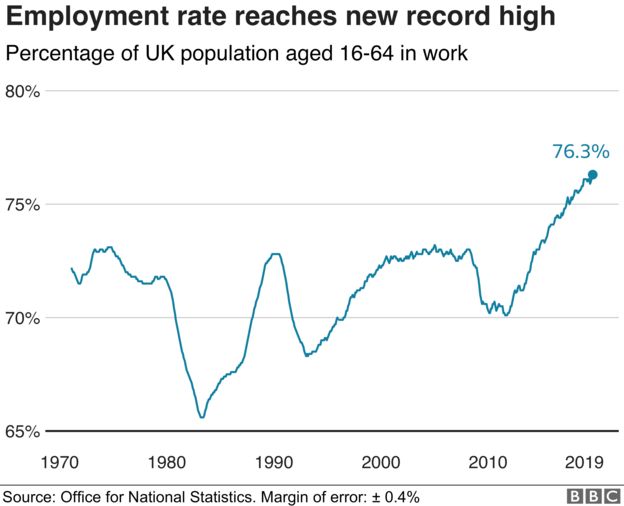UK Inflation fell to its lowest level in three years to 1.3 % in December, falling from 1.5 % in the prior two months and falling from a peak of 3.1% in November 2017.
The Bank of England are expected to meet at the end of the month to consider a cut in interests’ rates back to 0.5%, as many consider there will be a lack of ‘inflationary pressure in the near future’.
Certainty has been brought back to the market, since the election, with a recent flash PMI (Purchasing Managers’ Index) indicating that the UK economy is at its highest level of growth in 16 months. ‘The flash IHS Markit / CIPS composite PMI reading for the UK hit 52.4 in January, up from 49.3 in December. Any figure under 50 indicates a contraction, while any over 50 represents growth’.
UK flash #PMI up to 16-month high in January signalling post-election rebound. #GDP signal is now +0.2% q/q after a stagnant fourth quarter. #GBP #BOE pic.twitter.com/v166H75Y9Y
— Chris Williamson (@WilliamsonChris) January 24, 2020
Unemployment fell a further 7,000, bringing the number of unemployed to just under 1.31 million and achieving a record rate of employment at 32.9 million people (76.3%).
Wage growth continued to outstrip inflation at 3.4% denoting a 1.8% real term pay rise for employees. The government have also confirmed their plans to increase the national living wage from £8.21 to £8.72 in April, meaning a 6.2% increase.

The economy is returning to strength and certainty; this is a great time to search for work. Wages are increasing, inflation is low, and vacancies remain high at over 800,000.




